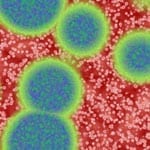 The World Health Organization (WHO) has issued further advisory measures on appropriate risk controls to conduct safe research on H5N1 influenza.
The World Health Organization (WHO) has issued further advisory measures on appropriate risk controls to conduct safe research on H5N1 influenza.
The organization originally convened on the matter in February 2012, during the height of the controversy over publication of two H5N1 studies which were being assessed for their potential risk to aid those seeking to conduct a bioterror attack. At the time, the WHO even went as far as calling for a temporary ban on publishing of such H5N1 research.
In the ensuing months, the research was ultimately published, even as national and international agencies were working to improve their policies and risk mitigation strategies for such Dual Use Research of Concern (DURC).
According to the WHO, the new guidance was informed by reviewing existing frameworks and consulting with a number of scientific bodies and experts from the human health and animal health communities. In assessing their perspectives related to biosafety and laboratory biosecurity guidance on conditions under which further research should be conducted on the laboratory-modified H5N1 viruses, the following brief guidelines were issued:
-Facilities wishing to work with the laboratory-modified H5N1 should critically evaluate the considerable personal and institutional responsibilities inherent in manipulating influenza viruses with pandemic potential that are not presently circulating in nature.
-Only laboratories that meet the appropriate biosafety level AND show conformity to available biorisk management standards should consider working with these laboratory-modified H5N1 strains, in close collaboration and communication with relevant national authorities, and under strict national oversight.
-Relevant national authorities should identify, approve and oversee the laboratories which might work on this material.
-Biosafety and laboratory biosecurity considerations should be taken into account in reviews of research findings scheduled for publication.
-Final responsibility for the identification and implementation of appropriate risk assessment, mitigation, and containment measures for work with laboratory-modified H5N1 strains lies with individual countries and facilities. Accordingly, measures may vary from country to country, and decisions should be taken in light of currently available knowledge, context, and applicable national requirements.
Finally, the WHO instructed that with the potential of these newly developed laboratory-modified H5N1 strains to start a pandemic, it is important that facilities that are not able to identify and appropriately control the risks associated with these agents refrain from working with them.

